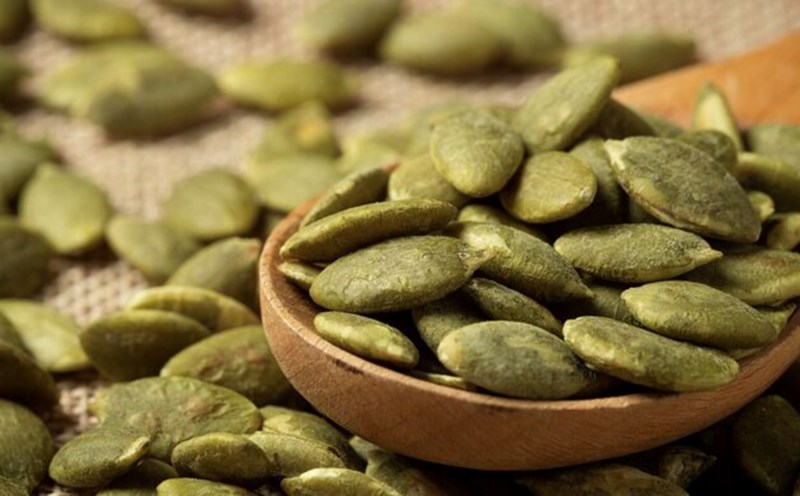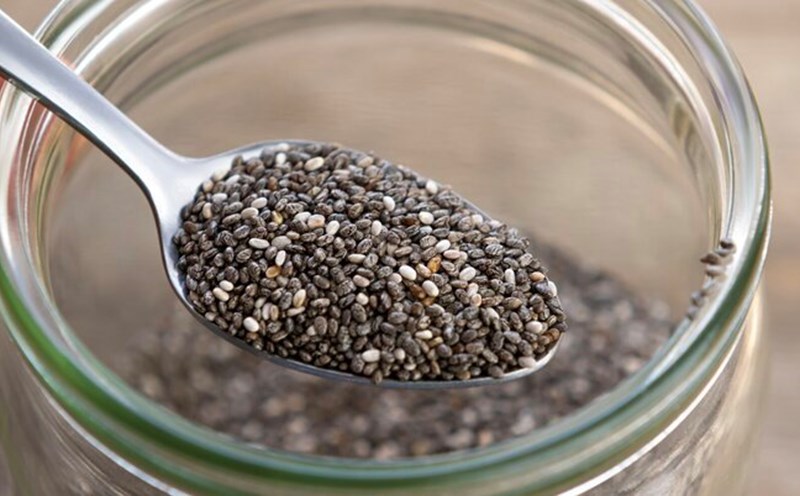Pumpkin seeds
There are about 5.1g of fiber in 100g of pumpkin seeds. Not only that, they also contain a lot of magnesium - a mineral that is necessary to maintain stable blood pressure and support cardiovascular health. You can eat it raw, roasted or sprinkled on salads and yogurt to enhance flavor and nutrition.
Spinach
A cup of cooked spinach contains 4.3g of fiber and essential vitamins such as A, C, E, K, iron and folate. Dark green leaf sugar like spinach not only adds fiber but also helps prevent chronic diseases like cardiovascular disease and cancer, says nutritionist Elizabeth Barnes (RDN, University of Michigan).
You can add spinach to noodles, soups or use it as a stir-fry with main meals.
Avocado
Half a cup of butter (about 100g) provides 5g of fiber. Avocado also contains monounsaturated fats - the type of fat that helps reduce bad cholesterol (LDL) and improve cardiovascular health. You can eat avocado with banh mi, salad or smoothies.
Le
A medium pear can provide up to 5.55g of fiber. In particular, nearly half of this fiber is in the skin. In addition, pears also contain vitamin C and plant compounds that can help lower blood pressure. You should eat pears with the skin after washing them to take full advantage of all the nutrients.
Chickpeas
Half a cup of cooked chickpeas contains 6.3g of fiber and more than 7g of protein. Chickpeas not only help you feel full longer but are also rich in folate and manganese. You can blend hummus, roast it until crispy or cook it with rice and soup.
Lentils
Lentils have an impressive fiber content: 7.8g in half a cup. In addition, they also provide folate, iron, and especially prebiotics - "food" for beneficial bacteria in the intestines. Eating lentils improves gut microbiota, which in turn strengthens the immune system and aids digestion, says Dr Sarah Johnson, a nutritionist at the University of Colorado.
You can use lentils to cook soup, stew, or mix salad.
Coconut meat
An ounce of unsweetened dried coconut provides 4.6g of fiber. In addition, coconut also contains antioxidants, protein and iron. Use coconut to add to oatmeal, yogurt, smoothies or as a topping for dessert that is delicious and nutritious.
Why is fiber so important?
Fiber helps the digestive system work smoothly, supports blood sugar control, reduces cholesterol, prevents constipation and the risk of heart disease, diabetes, and colon cancer.
However, according to statistics, more than 90% of Americans do not eat enough fiber per day. Adults need about 28-34g of fiber/day, while women need 22-28g.
Expert Elizabeth Barnes notes: Dont increase fiber too suddenly as it can cause bloating and indigestion. Gradually increase and drink enough water so that the body can adapt well".











